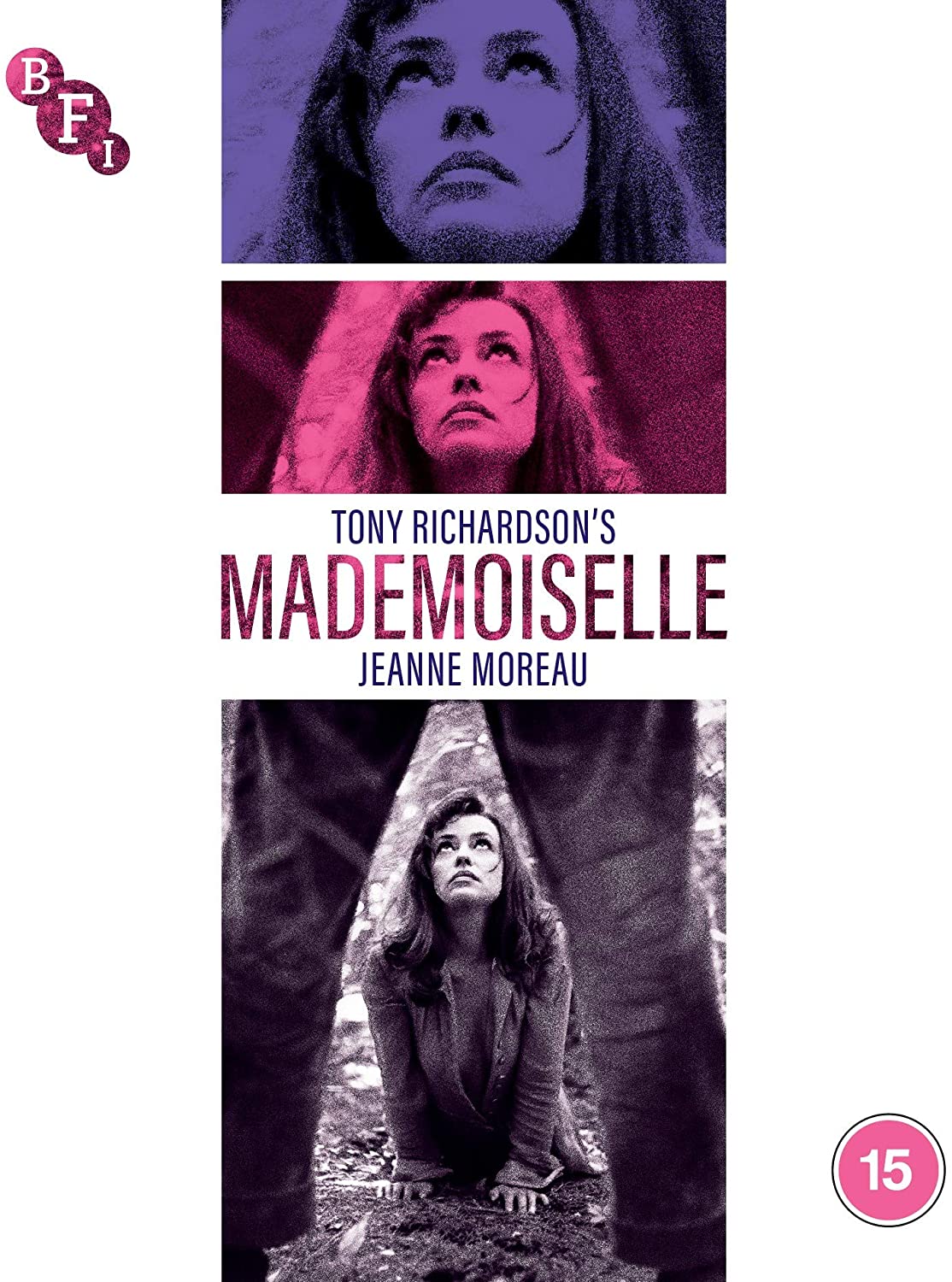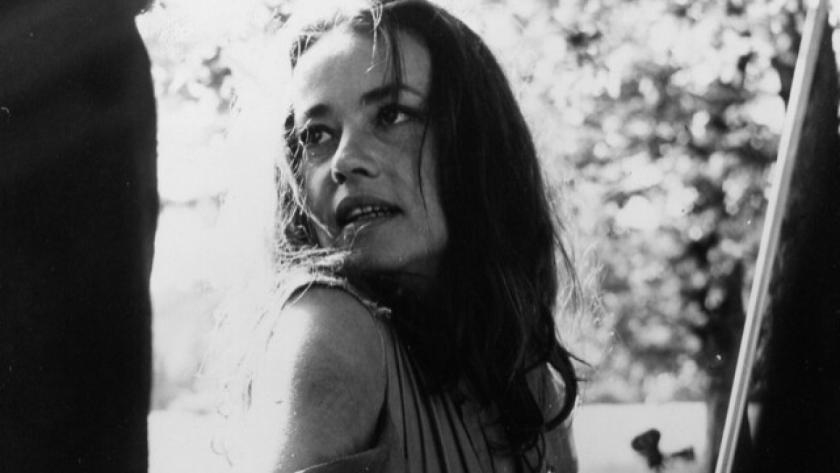Mademoiselle is Jeanne Moreau, in smouldering femme fatale mode: a school-teacher and town hall secretary in a small French village, she wreaks havoc by setting fire to barns, poisoning cattle and unleashing flood waters in a farm yard full of animals. As a seemingly uptight spinster of a certain age, she is above suspicion, and the villagers cast their eye instead on a stud of an Italian woodcutter (a suitably beefy Ettore Manni), who has sent the menfolk into jealous fury by seducing their frustrated wives. The savage finale, as the men of the village beat the outsider to death – a kind of human sacrifice, perhaps – isn't quite as disturbing as it might have been: it happens all too predictably.
Tony Richardson’s 1966 movie never quite rises beyond the constraints of an excessively unsubtle screenplay, based on a story by Jean Genet – a writer not know for holding back. The story might have had potential but feeds on cliché rather than rich or complex human psychology. As a document of the 1960s, when cinema was exploring the boundaries of what was permitted in cinema, the film has a certain value. In itself, however, it’s a dud – predictable and mostly boring, with a reliance on a bunch of ready-made and lifeless symbols, all of which are connected to sex: fire, gushing water, a wriggling snake, axes swung by the men of the woods.
 Moreau plays the village psychopath – a disturbed being in bourgeois clothing – very well. Her narcissistic play with costume, stiletto heels, and a flouncing gait are good enough but predictable. Some of the erotic play between her and the macho Italian works well. She’s beautifully filmed by director of photography David Watkin, who was no doubt encouraged by Tony Richardson’s British New Wave cinema love affair with rough visual edges and an apparent spontaneity.
Moreau plays the village psychopath – a disturbed being in bourgeois clothing – very well. Her narcissistic play with costume, stiletto heels, and a flouncing gait are good enough but predictable. Some of the erotic play between her and the macho Italian works well. She’s beautifully filmed by director of photography David Watkin, who was no doubt encouraged by Tony Richardson’s British New Wave cinema love affair with rough visual edges and an apparent spontaneity.
For all the attempts at high drama, the film doesn’t hold up as a convincing whole. The psychological dynamics aspire towards the logic of tragedy, and yet eschew the basic rules. The fact that at least four writers worked on the script suggests that there may have been something intractable about the story itself, or just a mismatch of talents. The film’s credibility is hardly helped by an inconsistent approach to language and sub-titles: The villagers, the police and "Mademoiselle" speak English, thankfully without a hint of an ’Allo ‘Allo French accent. Some of the village dialogue is in French, and the Italian woodman, his mate and his son speak Italian. This is an arthouse film, and we are used to watching Godard, Truffaut or Chabrol movies from the 1960s in French. The English-speaking peasants never quite ring true.
The bonuses on this BFI release are nothing special: an interview with Keith Skinner, who plays Bruno, the woodcutter's son, shares some anecdotes about casting ansd shoot, and an audio commentary from Adrian Martin. Though those curious about oddities from the early 80s may enjoy a look at Jan Worth's part-doc/part-fiction indie feature Doll's Eye (1982), an idiosyncratic and misguided exploration of men's attitudes to women,
If you're a Jeanne Moreau fan – and aren’t we all? – the film is worth watching as she fills the screen with erotic power as very few others do. It's easy to imagine Isabelle Huppert in a similar role, but she doesn’t ooze the same sensuality as the older actress. Moreau is a joy to watch. Such a pity that the film itself isn’t up to the quality of her performance.













Add comment